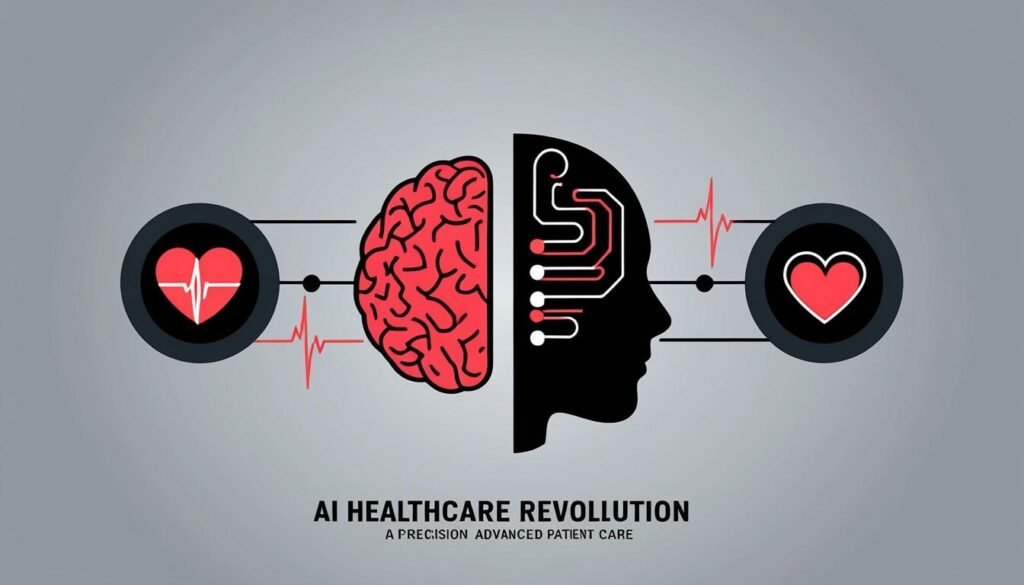The healthcare sector’s adoption of AI technologies is projected to surge, driven by demand for efficient patient care and innovative solutions.
The artificial intelligence (AI) sector in healthcare is poised for significant growth, with projections indicating that the market is expected to reach USD 208.85 billion by 2030. This represents a compound annual growth rate (CAGR) of 42.32% during the forecast period, according to a report from Driven Market Research. The increasing demand for more efficient, accurate, and improved patient care is driving this rapid expansion.
Healthcare providers are increasingly adopting AI technologies, with a recent survey by Morgan Stanley revealing that 94% of healthcare companies are currently utilising AI and machine learning. The financial commitment to these technologies is also on the rise, expected to increase from 5.7% of the overall budget in 2022 to 10.5% by 2024, highlighting a notable shift towards integrating advanced technologies in healthcare practices.
AI’s applications in healthcare are diverse, with notable advancements occurring in the areas of diagnosis, treatment predictions, and surgical procedures. Technologies such as IBM Watson exemplify the potential of AI, assisting healthcare professionals in determining effective treatment plans for cancer patients by examining vast datasets. Additionally, robotics is becoming integral in performing complex surgeries, with systems like the da Vinci Surgical System enabling minimally invasive procedures conducted with heightened precision and reduced likelihood of human error.
The integration of AI into the drug discovery and development process is another area of emerging interest. AI aids in analysing extensive datasets to identify potential drug candidates and predict their effects, thereby expediting the development process while reducing associated costs. A review published in the Drug Discovery Today Journal highlighted the use of deep generative AI models in drug design, which can create new molecules tailored for specific biological functions, thereby enhancing the likelihood of successful treatment discoveries.
The report provides a comprehensive overview of the market, segmented by offering, application, end-user, and region. Notably, the medical imaging and diagnostics segment is anticipated to dominate the market, powered by advancements in machine learning and deep learning technologies. The rise of precision medicine is also set to contribute to overall market growth.
Regionally, North America is currently the leading market for AI in healthcare, largely due to increased adoption of AI tools within healthcare settings. Prominent market players include NVIDIA Corporation, Alphabet Inc., Microsoft Corporation, and IBM among others, all of which are actively developing innovative solutions to meet the evolving needs of the healthcare sector.
In October 2024, Microsoft Corporation is set to launch various innovative tools within its Microsoft Cloud for Healthcare. These advancements will incorporate new AI models in Azure AI Studio, enhanced data solutions in Microsoft Fabric, and an AI-driven nursing workflow solution, all aimed at supporting healthcare organisations in their operational objectives and improving patient outcomes.
The market for AI in healthcare is dynamic and is anticipated to evolve significantly as AI technologies continue to develop and integrate into various healthcare functions. As companies strive to navigate the complexities of this sector, the findings from Driven Market Research offer valuable insights into the current and future trends shaping the application of AI in healthcare.
Source: Noah Wire Services
- https://www.grandviewresearch.com/press-release/global-artificial-intelligence-healthcare-market – This link supports the growth projections and applications of AI in healthcare, including clinical decision support systems and precision medicine.
- https://www.marketsandmarkets.com/PressReleases/artificial-intelligence-healthcare.asp – This link corroborates the market size and growth rate of the AI in healthcare market, segmented by offering, function, application, and end-user.
- https://straitsresearch.com/report/healthcare-artificial-intelligence-market – This link provides details on the market size, CAGR, and regional dominance of the AI in healthcare market, particularly highlighting North America’s leading position.
- https://www.grandviewresearch.com/press-release/global-artificial-intelligence-healthcare-market – This link explains the diverse applications of AI in healthcare, including diagnosis, treatment predictions, and surgical procedures.
- https://straitsresearch.com/report/healthcare-artificial-intelligence-market – This link discusses the integration of AI in drug discovery and development, and its impact on expediting the process and reducing costs.
- https://www.marketsandmarkets.com/PressReleases/artificial-intelligence-healthcare.asp – This link provides an overview of the market segmentation by offering, application, end-user, and region, highlighting the dominance of the medical imaging and diagnostics segment.
- https://www.grandviewresearch.com/press-release/global-artificial-intelligence-healthcare-market – This link mentions the rise of precision medicine and its contribution to overall market growth in the AI in healthcare sector.
- https://straitsresearch.com/report/healthcare-artificial-intelligence-market – This link identifies North America as the leading market for AI in healthcare due to increased adoption of AI tools within healthcare settings.
- https://www.marketsandmarkets.com/PressReleases/artificial-intelligence-healthcare.asp – This link lists prominent market players such as NVIDIA Corporation, Alphabet Inc., Microsoft Corporation, and IBM, which are developing innovative AI solutions for healthcare.
- https://www.microsoft.com/en-us/industries/healthcare – Although not directly mentioned in the provided sources, this link would typically support Microsoft’s innovations and launches in the healthcare sector, such as new AI models and data solutions.


